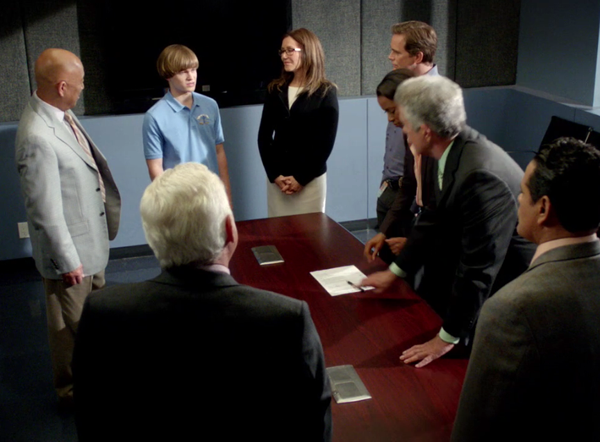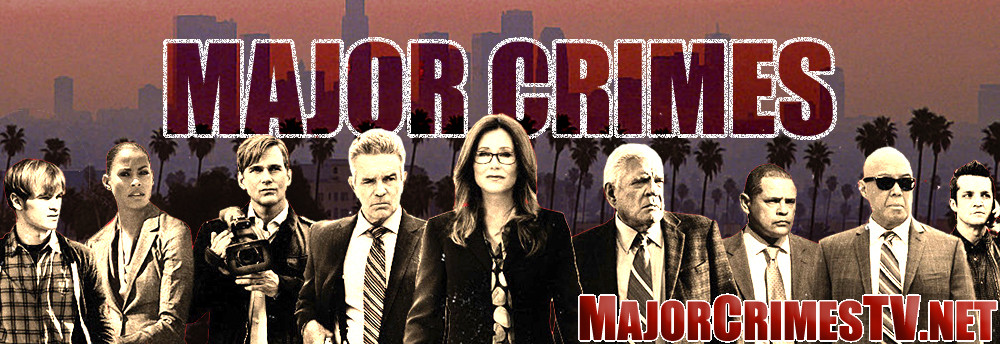Tweet
 In a new interview with TV Fanatic, Mary McDonnell talks about the transition between The Closer and Major Crimes, and how the success of the first season has allowed for greater freedom in storytelling going forward into season two.
In a new interview with TV Fanatic, Mary McDonnell talks about the transition between The Closer and Major Crimes, and how the success of the first season has allowed for greater freedom in storytelling going forward into season two.
‘TV Fanatic: I found Major Crimes Season 1 captivating. I look forward it more on a weekly basis than I did it’s predecessor. Congratulations on your success and Season 2.
Mary McDonnell: I’m very very happy that you have successfully transitioned into the new show. The plan was always to create a transition with integrity. We knew, James Duff Knew, I knew, we couldn’t really make a false move in there or we would lose a beloved fan group and we never wanted to…you don’t move forward into a new form without completely respecting the old and making sure that you maintain the story that was so iconic. All of those elements are so freaking interesting when you’re in the middle of it trying to figure out a moment to moment behavior of who a character is, inside that kind of container it becomes absolutely fascinating.
It was a really wonderful challenge to be as specific as that, so when it worked and people loved the new show, as well as held the predecessor as precious, we are beyond thrilled, do you know what I’m saying? It’s really exciting. Of course, the numbers speak for themselves and that part speaks for itself and I am just so thrilled and I think the fans are going to be so excited for the new season because with the confidence now of having morphed into a new form, this particular group, this particular major crimes division that operates differently now can dive back back into some very serious crimes. With all of these new politics influencing the way they can solve a crime or not and some the dynamics among us have changed and are still growing and changing, so it feels very fresh, and I’m excited about that.
I understand there is a new DDA who will ruffle some feathers, especially with regard to your relationship with Rusty. How is she going to affect that?
MM: And the many aunts and uncles! Which is so beautiful, isn’t it? That’s part of what I loved about how we ended the season with Rusty. The ending was the beginning of a new life for a child. To allow these cops to be at work together, touching upon their familial emotional heartstrings with this child is a really wonderful element to inject into a murder crimes division. The murder room has a new element to it and it’s beautiful and we have this kid. So that’s fabulous.
The new element that you brought up with the DA is also very exciting and it presents Sharon Raydor with philosophical dilemmas always because here is a young woman, a very ambitious DA coming in to help out with a cast that has to be dealt with. It’s why Rusty is with Sharon to begin with – he’s a material witness in the murder case with Philip Stroh. So this young DA comes in and on the one hand Sharon Raydor as a woman, who promotes young women in the world and their ambitions and as the foster mother of Rusty who wants the material witness part of his life to be over with, and as the cop who wants the Philip Stroh case to finally be dealt with and the person you became very supportive of on the other show, Brenda Leigh Johnson, on the other show. So there are all these areas that are coming together for her, and yet this person and her style becomes a bit of a dilemma, so it’s really interesting. Sharon’s always someone who is battling right decisions. On the on hand this is the right choice, on the other hand this is the right choice, how does she find the most powerful way through the right choices and pick the very rightest?
Essentially what is the most right for the moment.
MM: Yes. And that’s risky, that’s risky. It’s more sophisticated than right versus wrong.
